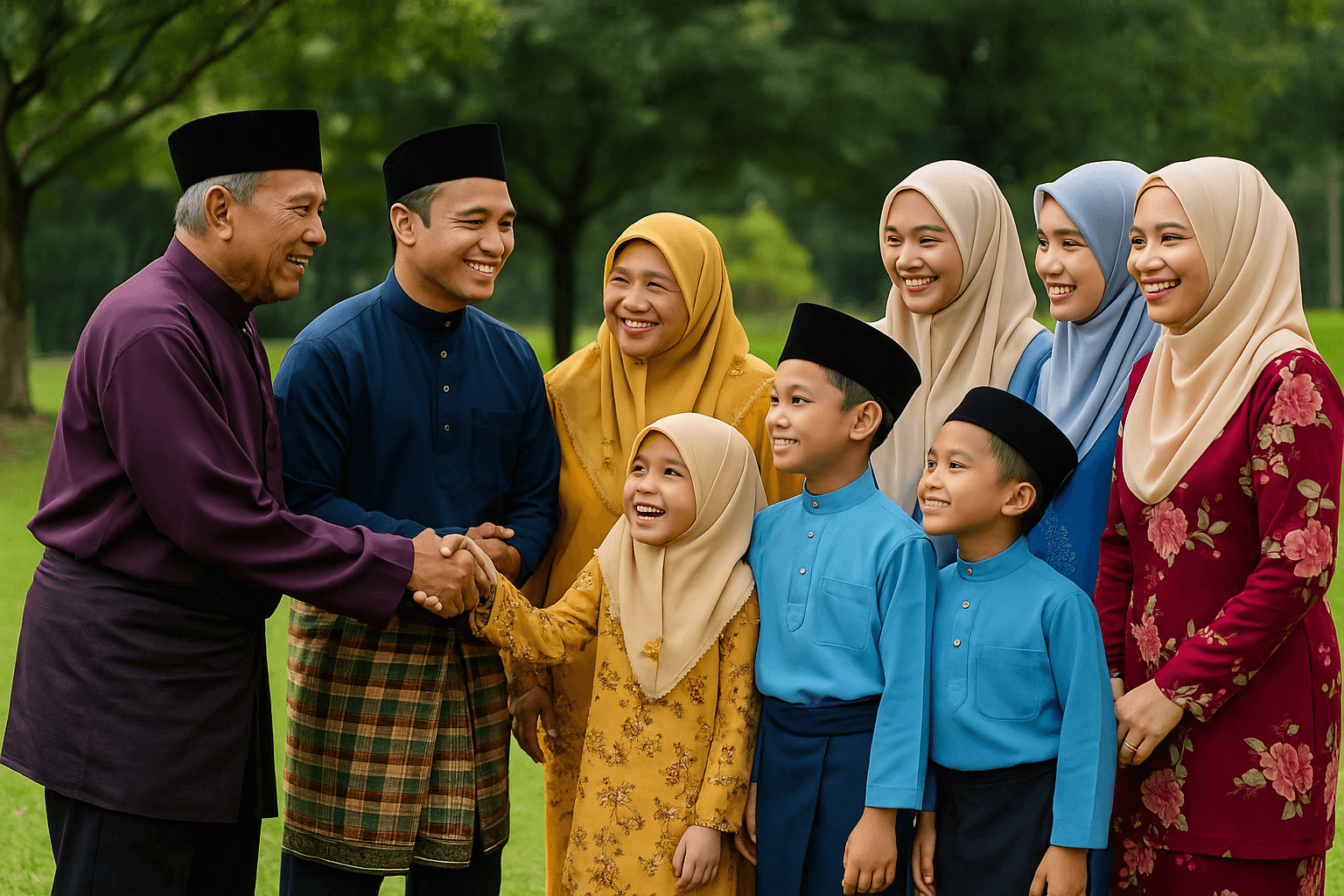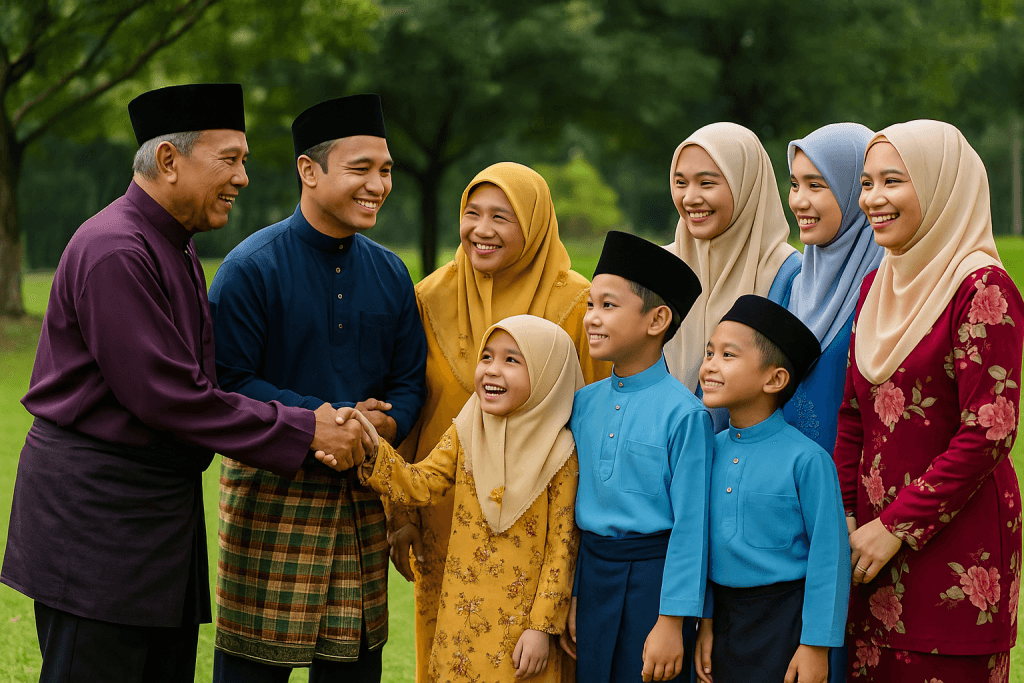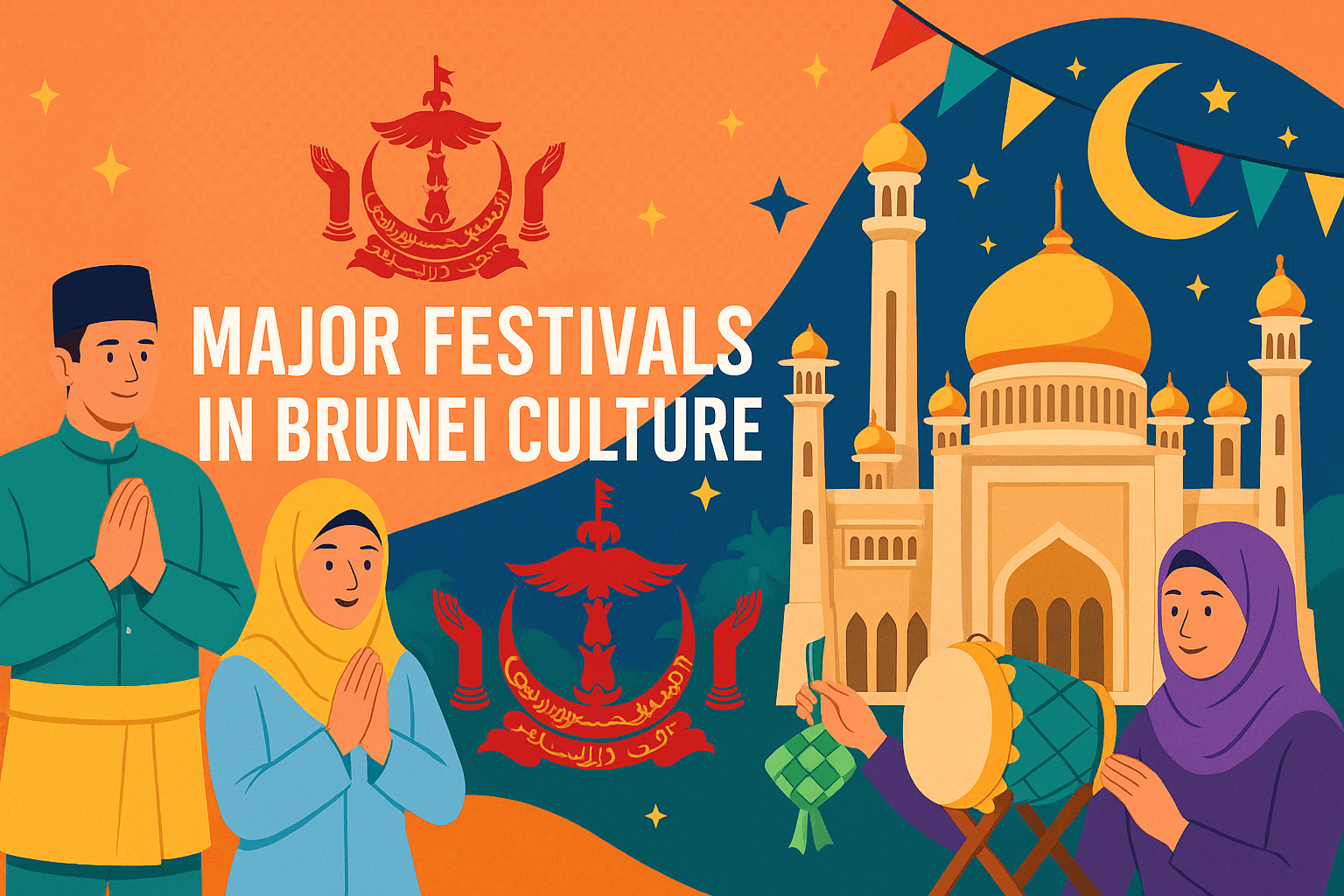Brunei Darussalam, a small yet culturally rich nation on the island of Borneo, holds strong values that are deeply rooted in tradition, religion, and collective identity. Among the most defining features of Bruneian life is The Role of Family and Community in Brunei Society. In this nation, families are considered the cornerstone of social order, while communities reflect the unity, cooperation, and shared identity that bind the people together. This article explores in detail how family and community shape the country’s culture, religion, education, traditions, and overall way of life.

Family as the Foundation of Society
Importance of Family in Brunei Culture
The family unit in Brunei represents more than just a household; it is the foundation of emotional, moral, and spiritual development. The principles of Islam, which is the state religion, guide family life with strong emphasis on respect, duty, and harmony. Parents are highly respected, children are nurtured with care, and extended families remain closely connected.
The Malay Islamic Monarchy (MIB) Framework and Family
The national philosophy of Brunei, known as Malay Islamic Monarchy (MIB), reinforces the strong connection between religion, governance, and society. Family life is directly influenced by these values, encouraging citizens to uphold Islamic teachings, Malay traditions, and loyalty to the monarchy. The Role of Family and Community in Brunei Society can be understood through how MIB reinforces unity and collective responsibility within households.
Extended Family and Kinship Ties
Unlike many modern societies where nuclear families dominate, Brunei places immense value on extended kinship ties. Grandparents, aunts, uncles, and cousins are actively involved in family matters. Family gatherings are common, and celebrations such as weddings or religious holidays are moments where extended families reinforce bonds.
Community as the Social Pillar
Community Identity and Belonging
In Brunei, communities are seen as extensions of families. Villages (kampong) are the basic organizational units of society, where people not only live but also share cultural, religious, and economic activities. These communities provide belonging, identity, and mutual support to all members.
Religious Guidance in Communities
Mosques act as central pillars in every community. Beyond religious obligations, they function as places for social gatherings, education, and dispute resolution. Friday prayers, Quranic classes, and religious lectures bring communities together, reinforcing shared spiritual values.
Collective Responsibility
The Role of Family and Community in Brunei Society also extends to collective responsibility, where neighbors look out for one another, and villages engage in cooperative projects. This sense of togetherness ensures that the values of care, compassion, and respect are maintained at both family and community levels.
Marriage, Family Formation, and Social Continuity
Marriage in Brunei is not just a union of two individuals but a merging of families and communities. The ceremony involves extensive participation from relatives, neighbors, and religious leaders. It signifies the continuation of traditions and the strengthening of social ties. Family formation ensures that Brunei’s cultural and religious values are passed down to future generations.
Education and the Role of Family
Parents in Brunei are actively involved in the educational lives of their children. From Quranic learning at home to participation in national schooling systems, families emphasize discipline, respect, and knowledge. Education is seen as a shared duty between families and the community, ensuring children grow into responsible, religiously grounded, and socially active citizens.
Community Celebrations and Social Cohesion
Festivals and public events reflect how deeply family and community are interwoven in Bruneian society.
Hari Raya Aidilfitri: Families gather to celebrate the end of Ramadan, strengthening bonds through shared meals and traditions.
Royal Ceremonies: Community participation in events linked to the monarchy highlights loyalty and national unity.
Village Feasts: Community-organized events showcase cooperation, cultural pride, and hospitality.
Through these celebrations, the bond between family and community becomes even more visible, reflecting The Role of Family and Community in Brunei Society.
Women, Family, and Community
Women in Brunei play vital roles in nurturing families and contributing to community development. While Islamic principles guide their roles, women actively participate in education, healthcare, and community organizations. Their contributions highlight the balance between traditional values and modern responsibilities.
Challenges and Adaptations in Modern Society
Globalization and modernization pose challenges to traditional values. Younger generations are increasingly exposed to global media, technology, and diverse lifestyles. However, Brunei has successfully maintained its cultural and religious identity by integrating modern life with traditional values. Families continue to emphasize respect, faith, and togetherness, while communities adapt through digital engagement and structured governance.
The Interconnection of Family, Community, and Governance
Brunei’s governance system reflects its cultural emphasis on family and community. Local leaders, village heads (Ketua Kampong), and community councils work closely with families to address issues, resolve conflicts, and organize communal events. This creates a direct link between governance, social harmony, and cultural preservation.
Conclusion
The Role of Family and Community in Brunei Society is central to understanding the nation’s cultural identity. Families nurture individuals with strong values of respect, faith, and loyalty, while communities provide a framework for unity, cooperation, and shared responsibility. Together, they form the backbone of Bruneian culture, ensuring traditions are preserved, religion is upheld, and social harmony is maintained in a rapidly changing world.
Through this lens, Brunei’s society reveals its unique balance between tradition and modernity, where family and community continue to serve as guiding lights for generations to come.


